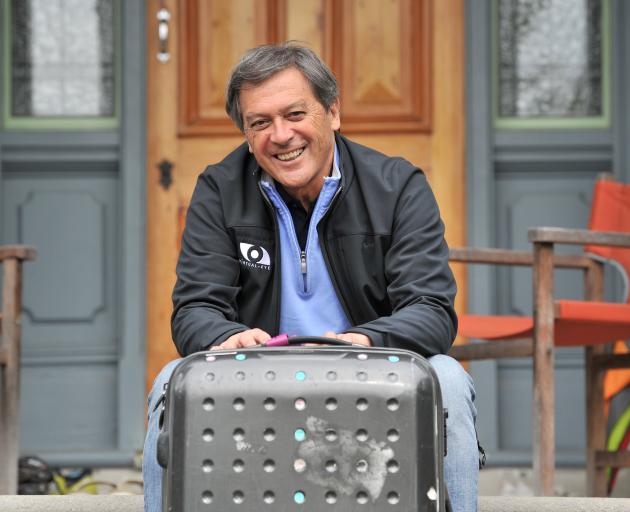
Prime Minister, thank you for your response to the initial nine questions I sent through a few days ago. I did note with some interest that the response appears to be similar to the one the mayor of Queenstown received when he expressed his concerns about how the recently announced isolation requirements were killing what remained of the regions tourism industry.
Like him, I was told I could expect a response from Minister Hipkins shortly.
This response aligns with another that has been shared with me from a number of people who have offered to bring their expertise off the bench to help as well. It comes in various forms but basically, it reads – "thanks - but no thanks." Most of those have come from Dr Bloomfield and the MOH. In other words, "Trust us we know what we are doing."
Trust is something that is earned and the early responses you made to a situation we had never faced before earned the trust of the entire country. But we then wasted more than 16 months of being Covid-free to ready ourselves for the inevitable arrival of Covid into Aotearoa.
You may recall presentations Sam Morgan made to you in early 2020 about the "Covid Card."
I was on the periphery of those discussions and recently I checked the notes I took when Sam first called me about his concerns of the direction we were heading. This was in May 2020.
In summary, they read:
"Hope it doesn't happen but there is a huge chance that in a year to a year and a half a new variant of Covid will arrive in the country. It will almost certainly show up first in South Auckland in a church or some similar gathering of the community. Because English is a second language for many in that community the covid advice being written by officials out of Wellington will not resonate at all. Because most don't have phones, let alone mobile phones, the 'one solution fits all' of a Covid tracing app is going to make tracing contacts incredibly difficult, if not impossible."
He went on to observe:
"The virus will spread through the community because of the communal living, it will then get into the homeless people in the streets and from there it will be untraceable. The covid tracing team will be stretched to breaking point and they will never find the original source that had crossed the border, where so many of this community work."
When I mentioned this to one of your health advisers recently the response was – "well that's all very well in hindsight!"
It was May 2020!
It was not hindsight. It was planning for a future that we hoped would not come but one we needed to be ready for if it did. It's something that businesses have to do every day.

Trust is a two-way street and once again the MOH delivered a "we know best" rapid antigen test protocol when it finally agreed to allow them to be sold in pharmacies – but then made it a requirement that you had to be tested by the pharmacist in the shop. You weren't going to trust us to actually use them ourselves – like the rest of the world does – and you were now asking pharmacists to bring into their premises people who potentially had Covid to mingle with their normal clients while they waited for their results.
So question 1 this week:
How has that "we know best" approach worked to date?
The locked-down border that you controlled 100%, leaked. We still don't know where, but we do know that there are now thousands of Covid cases in the country – just as Sam Morgan predicted almost two years ago.
The short sharp lockdown strategy has now extended to over 100 days in Auckland and divided the country in ways we could never have imagined. And yes, there are now thousands of people, with Covid, isolating at home, with their families.
The PR line continues to extol the virtues of MIQ – usually along the lines that we have brought around 190,000 people through the border in the past two years. Before Covid, that number was 20,000, a week.
The numbers we should be talking about are the number of Kiwi citizens who have been trapped overseas, some for more than a year, many missing the early years of their children growing up, others without visas, many with no means of support. It has not gone unnoticed that we no longer hear the tag line – "be kind"
I would understand this approach if there was no other way to address it. But there is and it's out here waiting for your officials to actually live up to one of the tag lines you have borrowed from Māori – He Waka Eke Noa – we are all in this together. In the Māori world, those aren't just words – we live them.
Finally – back to my nine questions that I am awaiting a response from Minister Hipkins on.
He can now drop question three – the one about using urgency to change the law.
A law firm sent me a note to say you had already done that on November 19th by adding a clause to the Covid 19 Public Health Response Amendment Bill (No 2) that effectively gives Dr Bloomfield the power to seize the assets of a privately owned company and pay for their services at a commercial rate that he will determine. They can appeal that decision to the District Court – but no further. There is no right of appeal to the higher court.
Which leads me to questions number two and three.
Do you think that it is a reasonable use of urgency given that it seems we are in this position because of a decision Dr Bloomfield and the MOH made about taxpayer funds being used to subsidise just the one, Canadian-owned, nasopharyngeal PCR test which is now running up to five days late in delivering its results when there was a Kiwi solution on offer as well?
Is it likely that it is this Kiwi company that will have its assets seized under this new law?













